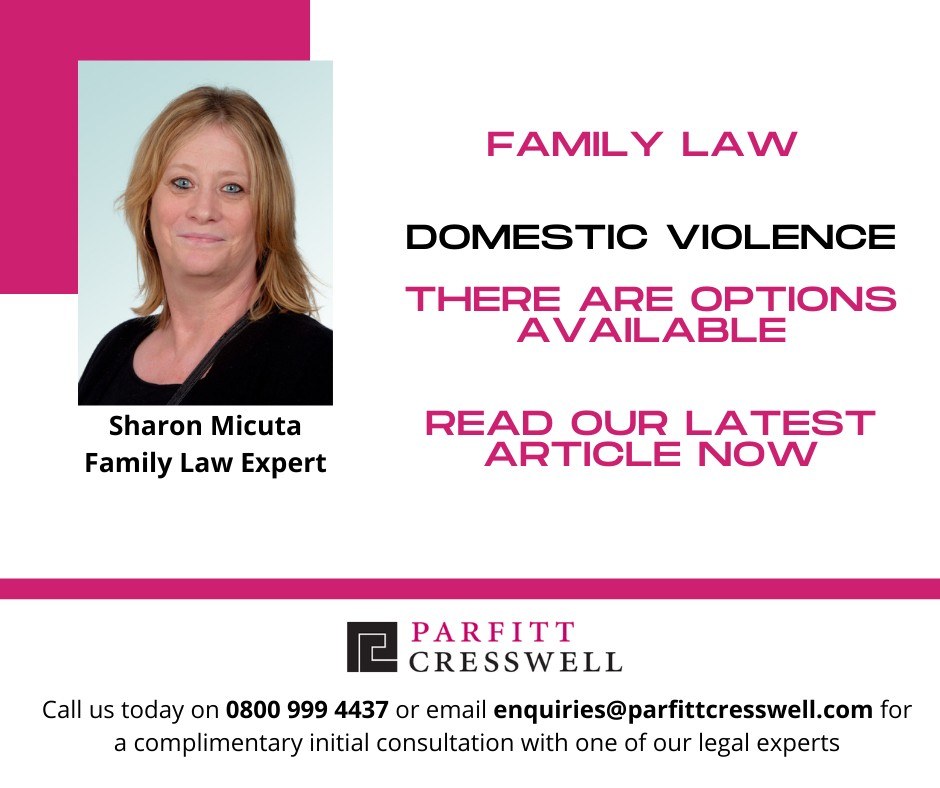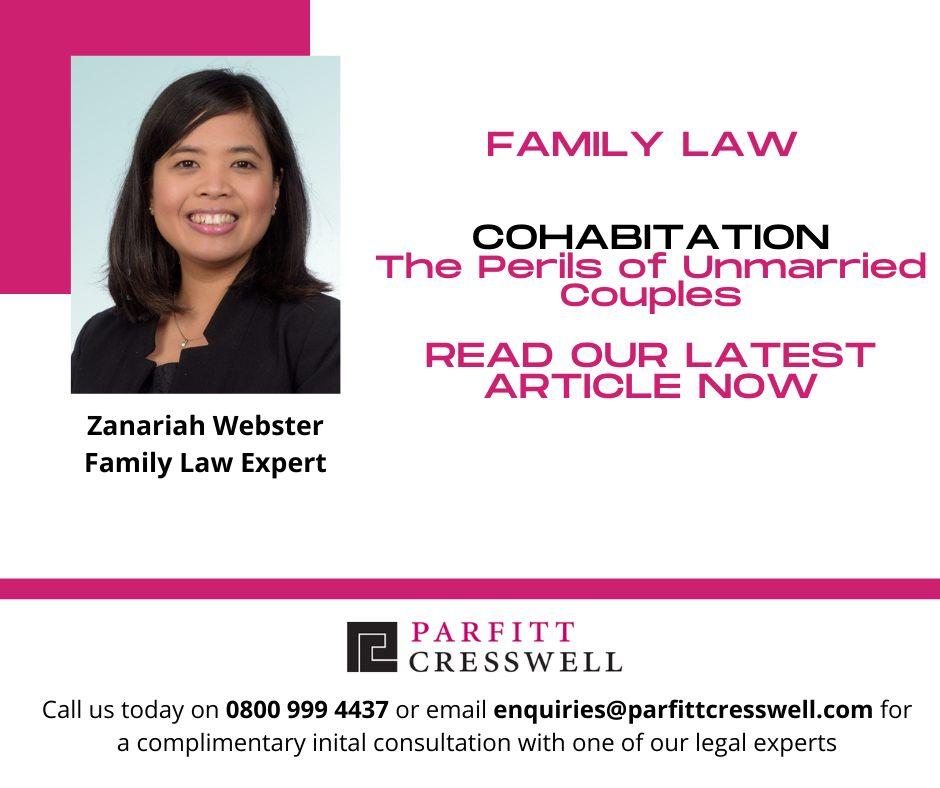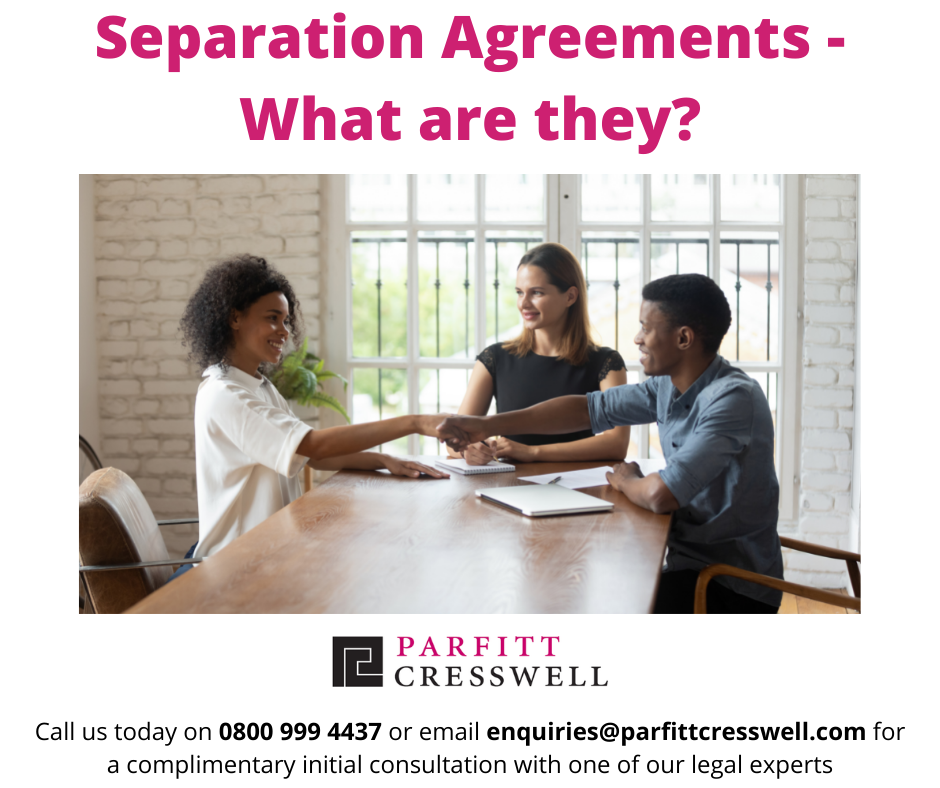Domestic Abuse

Many people consider “domestic violence” to be actual physical violence against a person or an imminent threat of physical violence. As a result many people remain in unhappy relationships, tolerating unacceptable behaviour, including controlling and abusive behaviour, forced isolation from family and friends and critical and belittling behaviour because they feel there is nothing they can do about it. This is not actually the case and domestic violence can be deemed to exist in many different ways within a marriage or relationship.
Nobody should find themselves in a relationship whereby their partner is behaving in an unreasonable way towards them. Over time, this may cause a feeling of worthlessness, loss of confidence and they may find themselves becoming a “victim” in a relationship rather than a partner.
This could ultimately lead to depression, emotional turmoil, insecurity, a feeling of isolation and loneliness and, in extreme circumstances, death or serious injury.
The U.K has a “zero” tolerance attitude towards such behaviour and the Court’s take this behaviour very seriously. If your children are also subjected to violent behaviour from your partner, or are witnessing violence within their home, the Courts will also make orders protecting them from the perpetrator. As well as protecting a partner to a relationship or marriage, in some cases, where the court considers it appropriate, all contact between the perpetrator and the children may be terminated.
Often a victim of domestic abuse feels embarrassed and humiliated by the way they are treated and too frightened to ask for help. Unfortunately, this is very common. However, you are not alone – unfortunately domestic abuse affects 1 in 4 women and 1 in 6 men during their lifetime, regardless of age, race, disability or lifestyle. Where such behaviour is frequent, the victim, over a period of time, begins to accept that this type of behaviour is acceptable and “normal”
The Government definition of domestic violence is considered to be:-
“any incident or pattern of incidents of controlling, coercive, threatening, violence or abuse between those aged 16 or over who are, or have been, intimate partners or family members regardless of gender or sexuality.”
Family members are defined as mother, father, son, daughter, brother, sister and grandparents, whether directly related, in-laws or step-family;
Such abuse can involve, but is NOT limited to
- Psychological
- Physical
- Sexual
- Financial
- Emotional
Case law suggests that strangulation is one of the most potentially lethal forms of intimate partner abuse. A frequently cited 2001 study found that 10% of violent deaths in the United States were attributable to strangulation and most victims were women.
There is a common perception in many societies that domestic violence is the woman’s fault. While this perception is changing, this belief is often shared by women as well as by men. For example, in some cultures, some women are still not allowed to make choices about whom they will marry and whether or not they will stay in a relationship.
Most of us can look back to times when we wish we had known how to do things differently. Anyone who has been victimised by violence or abuse must not blame themselves. If someone tries to control you through saying cruel things, making threats, or acting dangerously towards you, it is NOT YOUR FAULT. An abusive partner’s destructive behaviour is not your responsibility. Until the aggressor accepts this and seeks help to desist in this type of behaviour, it is an unfortunate fact that a victim will continue to be the “victim”. Often by taking some action against this destructive behaviour, will result in this being achieved.
- If you believe that you are suffering at the hands of your partner and are subjected to ongoing abusive and/or unreasonable behaviour or subjected to actual physical violence, you do not need to tolerate it and there are various ways of dealing with the matter.
What are my options about domestic abuse?
Firstly, making a decision and taking that first step to stop domestic abuse is extremely hard and it may be that you only want to talk to someone about your situation in the first instance. This is quite natural and if you feel unable to speak to a friend or member of your family for fear of repercussion, there are many organisations such as “Dash” (Domestic Abuse Stops Here) and Berkshire Women’s Aid who offer this service on a free and confidential basis. They can offer you support and advise you on the options available to you. If you then feel able to take the next step in finding freedom from domestic abuse, they will assess and complete a support plan tailored to your individual family needs. They will provide continued support throughout which as well as emotional support may include safety planning and crisis intervention including safe housing accommodation. They are also trained to support and assist your children during this difficult time.
How does domestic violence and abuse affect my children?
It is important to understand that it is known that children and young people who suffer or witness domestic abuse are 3 times more likely to suffer from emotional difficulties including low self-esteem often displaying aggressive behaviour as well as other behavioural difficulties, and this may also affect their own future relationships.
What if my partner will not accept my decision?
Often the aggressor in a violent relationship feels a high level of ownership over the other partner. It is therefore very common that once a person has decided to take that step to stop domestic abuse their partner feels a sense of loss of control and ownership. This often results in threatening, harassing and intimidating behaviour in an attempt to prevent that person from leaving the relationship and in attempt to gain control of the situation again. It is at this stage that many people return to abusive relationships for fear of the repercussions if they do not. It is at this stage that the victim will need all their strength and support to continue to move forwards to freedom from domestic abuse. If this happens, it is possible to ask the Family Court to make the necessary orders to protect you and your children from this type of behaviour to allow you to move forwards and begin your new life.
What can the Family Court do?
Pursuant to the Family Law Act 1996, the Family Court have the power to make a variety of orders including a non-molestation order forbidding a person from using or threatening violence against a person or from harassing, pestering or intimidating that person. It can also order that there be no communication between the parties. This can include an order forbidding third parties, such as the perpetrators family and friends from acting upon your partner’s instructions. The court also has the power to grant such an order in respect of any children of the relationship.
Why should I leave my home when I am the victim?
It is quite wrong that a victim of domestic abuse feels that they have to leave their homes, friends and families due to another person’s behaviour. Therefore
in addition to a non-molestation order, in some circumstances, the Court can make an occupation order that a person vacate the family home and thereafter is not permitted to return for a period of time to allow the victim of the abuse (and the children if appropriate) to remain in their home.
In extremely urgent circumstances it is possible to obtain a non-molestation order immediately and in extreme cases, although this is rare, an occupation order. These orders often remain in force for up to 12 months and can be extended if necessary. They also carry a power of arrest which provides the Police with authority to arrest a person should there be a breach of the order.
What is a Power of Arrest and how does it work?
Once an order/s have been obtained from the Court, they have to be served personally by a process server on the person subject to the order. Once this has been done, if you believe that the orders have been breached you are entitled to call the Police and they will arrest the person subject to the orders and will present him before the court at the earliest opportunity thereafter. These are particularly effective over weekend periods or bank holidays when there may be less support than would be the case during the week. The police are entitled to hold the perpetrator until such time as they can produce them before the Court.
The Court, if satisfied that an order has been breached, will impose punishment which includes an immediate prison sentence, suspended prison sentence, fine or community service. The punishment is dependent upon the seriousness of the breach committed.
How much is the court process - can I get Legal Aid ?
There are currently no court charges to make an application to the Family Court. It is also possible, in some circumstances, to receive public funding in order to receive legal assistance to obtain any of the above orders and the Legal Aid Agency would be able to assess your eligibility in this respect. If you are not eligible for Legal Aid you can instruct a solicitor on a private paying basis or if you feel able can make the application yourself. However, where a victim has been manipulated and bullied and remains in fear of the perpetrator this may not be appropriate.
What are my next steps?
The Family Team at Parfitt Creswell not only deal with all matters relating to the breakdown of a relationship or marriage but also offer specialist advice and assistance for people who are suffering from domestic violence and abuse. If you would like to visit us to discuss your situation, we offer a free initial consultation during which we can discuss in more detail and on a completely confidential basis, your particular circumstances, your options and we can refer you to the appropriate network of support if necessary. If Court proceedings are issued, we will assist and guide you throughout together with other organisations.
To speak with one of our Family Law Experts and arrange a complimentary, no-obligations consultation call 0800 999 4437 or email enquiries@parfittcresswell.com today. We are here to help.




